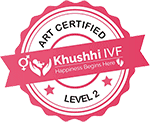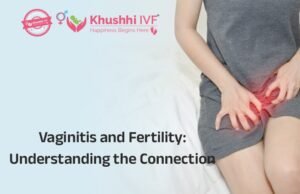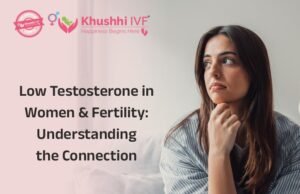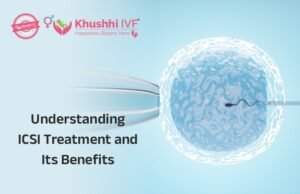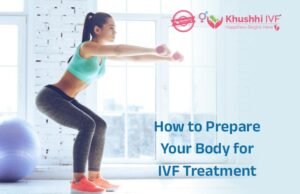Starting an IVF stimulation cycle is a significant step toward achieving your dream of parenthood. If you have chosen Khushhi IVF Centre, known as the Best IVF hospital in Ahmedabad, you’re already on the right path. However, the journey doesn’t stop after beginning the stimulation cycle. It’s crucial to follow specific guidelines to maximize the chances of a successful IVF treatment. Here are some important do’s and don’ts to keep in mind during your IVF treatment at our IVF clinic with advanced technology.
Do’s
Follow the prescribed medication regimen
Medications are essential for the success of your stimulation cycle. Ensure that you take the medications as directed by the Best IVF doctor in Gujarat, Dr. Dipesh Sorathiya. These medications help stimulate your ovaries and prepare your body for the retrieval of eggs. Consistency is key to achieving the best results.Stay hydrated and maintain a balanced diet
Hydration plays a vital role during your stimulation cycle. Drink plenty of water to support your body’s metabolism and enhance the effectiveness of the medications. A balanced diet rich in fruits, vegetables, and lean proteins will also support your overall health and fertility. It’s essential to provide your body with the nutrients it needs during this crucial time.Rest and reduce stress
Stress can negatively impact fertility. Make sure to get adequate rest and try to avoid high-stress situations. Consider relaxation techniques like yoga, meditation, or deep breathing exercises. A calm and positive mindset can greatly influence your IVF treatment success.Attend regular monitoring appointments
Regular visits to Khushhi IVF Centre, one of the most trusted IVF hospitals in Ahmedabad, are necessary to monitor the progress of your stimulation cycle. The team will track the growth of your follicles and adjust medications as needed. Following through with these appointments is vital to ensure the cycle is progressing well.Maintain open communication with your doctor
If you experience any discomfort or side effects from the medications, it’s important to inform your doctor immediately. The Leading Reputed IVF doctor in Ahmedabad, Dr. Dipesh Sorathiya, and the expert team at Khushhi IVF Centre are always available to provide guidance and adjustments to improve your treatment plan.Consider Embryo Freezing
If you have extra healthy embryos after the cycle, you may want to consider Embryo freezing in Ahmedabad. This option is available at our IVF hospital at SG Highway, Ahmedabad. Freezing embryos gives you more flexibility in future treatments, especially if you experience challenges with the first cycle.Stay positive and patient
IVF is a process that can take time. Patience is key. Staying positive throughout the journey helps you cope better with any hurdles you may encounter. Trust in the expertise of our Top-rated fertility specialist Ahmedabad and remember that each step brings you closer to your goal.
Don’ts
Don’t skip your medication or change the dose
It’s important not to miss any dose of your medication. Even slight changes in dosage can affect the outcome of your IVF treatment. Always follow the directions given by the most experienced doctor in Ahmedabad for IVF treatment, ensuring that every detail is carefully adhered to.Avoid alcohol, caffeine, and smoking
Alcohol, caffeine, and smoking can negatively affect fertility and disrupt the stimulation cycle. These substances may reduce the chances of success with IVF treatment with high success rates in Ahmedabad. It is advised to refrain from these habits during the entire IVF process.Don’t engage in strenuous physical activities
Intense exercise can interfere with the stimulation process. While moderate physical activity is fine, avoid heavy lifting, high-impact exercises, or activities that put excessive strain on your body. Light walking or gentle yoga is encouraged.Don’t ignore any signs of side effects
During the stimulation cycle, some discomfort such as bloating or mild pain is normal. However, if you experience severe pain, heavy bleeding, or any unusual symptoms, contact Khushhi IVF Centre immediately. Timely intervention can prevent complications and ensure the best possible outcome.Don’t let anxiety take over
The IVF process can be emotionally and mentally taxing. However, it is important to avoid excessive worry or stress. Our Infertility counselling services at Khushhi IVF Centre are available to support you through every stage of the process. Seeking help when needed can improve your emotional well-being.Don’t forget about sperm health if you are undergoing male fertility treatment
If you or your partner are undergoing Low sperm count treatment in Ahmedabad, remember that sperm quality plays a crucial role in the success of IVF. Avoid unhealthy habits, follow the prescribed medication, and maintain good overall health to improve the chances of a successful treatment.Don’t delay in seeking additional treatments if needed
If your first cycle doesn’t result in success, don’t be discouraged. IVF success with first cycle in Ahmedabad isn’t guaranteed for everyone, but the team at Khushhi IVF Centre offers Advanced infertility treatments Ahmedabad to support you in subsequent cycles. Treatments like ICSI treatment, Embryology, Vitrification – Egg, Embryo, Sperm Freezing, and Preimplantation Genetic Testing (PGT) may improve your chances of success.
Conclusion
The success of your IVF cycle depends on your commitment to following the right guidelines. At Khushhi IVF Centre, one of the Best IVF hospitals in Ahmedabad, we are dedicated to providing you with the highest level of care. By following these do’s and don’ts, you can improve your chances of achieving a successful pregnancy. Our team of experts, including Dr. Dipesh Sorathiya, a Leading Reputed IVF doctor in Ahmedabad, is here to guide and support you every step of the way. Whether you’re seeking Affordable IVF treatment in Ahmedabad or advanced treatments like Embryo freezing in Ahmedabad or IUI treatment with affordable price, we are committed to offering the best services tailored to your needs.
